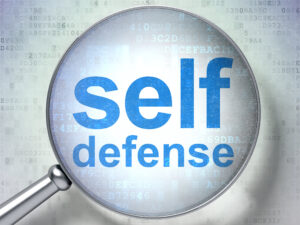
Domestic disputes oftentimes come down to he said, she said arguments, and police have been trained to err on the side of caution if there is any doubt about a situation. This can complicate matters in a hurry, especially if police are quick to believe the other person or dismiss your claims of self-defense.
However, if you’ve been charged with domestic assault or are dealing with the aftermath of a domestic dispute, you still have steps you can take to prove that your version of events is what truly transpired. Below, we share some tips on how you can prove self-defense after a domestic incident.
Proving Self Defense
For a number of different reasons, men oftentimes tend to be viewed as the aggressor in a domestic dispute. They very well may be the aggressor, but they certainly aren’t 100 percent of the time, so you can feel like you’re fighting an uphill battle if you’re trying to prove that your actions were only performed in self-defense. Here are some tips for proving self-defense after a domestic dispute.
Reviewing Statements – Police will likely take statements from you and your partner on the day of the incident. These can go a long way in showcasing who was the aggressor. That’s why it’s so important to not let emotions get the best of you when you’re giving your statement. Stick to the facts and your story of self-defense. Your spouse may not explicitly say that they were the aggressor, but what they say in their statement can give clues about their role in escalating the situation.
Witnesses – If anyone witnessed the altercation, they too may be able to back up your statements. Even if the incident occurred inside a residence away from the public eye, that doesn’t mean others didn’t hear things. Witness statements can also be used to strengthen your claim.
Criminal History – If one party has a history of domestic violence, or they have other criminal convictions that suggest their actions and their words aren’t lining up, that can help your case. Past criminal convictions are helpful for building a pattern of behavior.
Text Messages – If there are abusive or volatile text messages, e-mails, or voicemails, those too can help suggest the other party was the aggressor. Save any correspondence that could help prove that the other side was the aggressor.
Recordings – If you sense that an argument is coming on, it doesn’t hurt to start recording the incident on your phone. Not only can video taping help to deescalate the situation because all parties know that their actions are being filmed, but it can also back up your claims in the event something transpires.
Hiring A Lawyer – Finally, the best thing you can do for your case if you’re attempting to prove that you were acting in self-defense is to contact a criminal defense lawyer. We’ll be able to review all this evidence and put forth a strong case that shows beyond a shadow of the doubt that your version of self-defense is the true narrative. Not only will we help you build your case, but we can help you avoid the worst possible outcomes, which can be significant in domestic abuse cases. Hire a lawyer and put forth the strongest defense.
For help with your domestic issue, reach out to Avery and the team at Appelman Law Firm today at (952) 224-2277.





